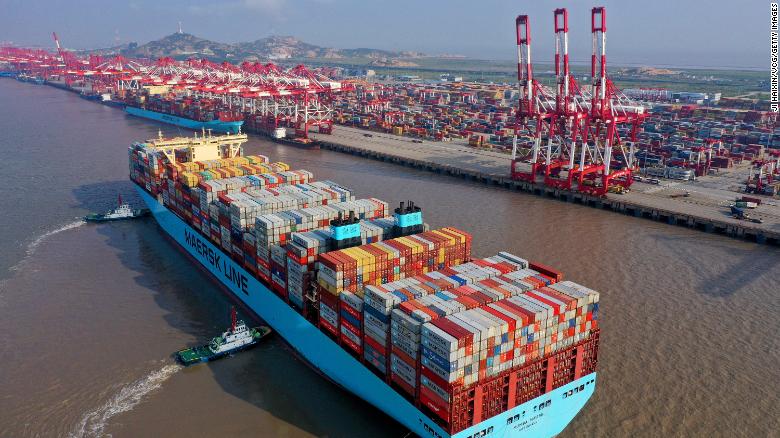- Major industrial such as Hyundai have stopped their production and this has affected the global supply chain.
- This shutdown has been attributed to the fact that countries are trying to contain the spread of the virus.
- Around 560 people have been killed and 28,000 were infected with 60 million people are living in lockdown.
- Maersk, MSC Mediterranean Shipping, Hapag-Lloyd and CMA-CGM have reduced the number of vessels.
- Many countries have refused ships to dock and are placed on quarantine.
- The lack of activity is reflected in oil prices, which have crashed into a bear market.
According to an article published on CNN and authored by Hanna Ziady, shipping companies are reducing traffic to help contain the spread of coronavirus.
The busiest port has fewer takers
Around 80 percent of the world’s trade is reliant on the oceans. Among the ports, China is considered to be the busiest port but however, the traffic is sparse as an increasing number of ships are placed in quarantine and many more are reducing their service.
Peter Sand, the chief shipping analyst at BIMCO, an international shipping association, “A closure of the world’s manufacturing hub impacts container shipping at large, as it is a vital facilitator of the intra-Asian and global supply chains. This will affect many industries and limit demand for containerized goods transport.“
Shipping trade crippled
Disruption to the industry has reverberated far beyond China as the country seeks to contain the coronavirus outbreak by keeping factories shut and workers at home.
The longer the health crisis lasts, the harder it will be to move goods around the world. The coronavirus outbreak has killed more than 560 people and infected at least 28,000 — mainly in China, where close to 60 million people are living in cities on lockdown.
Floating quarantine – Ships denied entry
The shutdowns mean that some ships can’t get into Chinese ports, as the loading and discharging of goods slows, said Guy Platten, secretary-general of the International Chamber of Shipping, a trade body. Others are stuck in the dock, waiting for workers to return to ports so that construction and repairs can be completed, Platten added.
Still, more vessels are idling in “floating quarantined zones,“ as countries such as Australia and Singapore refuse to allow ships that have called at Chinese ports to enter their own until the crew has been declared virus-free, added Sand. Platten said he knew of at least one crew that is running low on food because their ship has been idled for so long.
Giant shipping companies such as Maersk, MSC Mediterranean Shipping, Hapag-Lloyd and CMA-CGM have said that they have reduced the number of vessels on routes connecting China and Hong Kong with India, Canada, the United States, and West Africa.
Air cargo disrupted
Not only is the shipping industry affected, but the effect has also been felt by the airline industry.
According to a statement on its website, “IAG Cargo, the air cargo arm of British Airways parent IAG (ICAGY), has canceled all services to and from mainland China for at least the remainder of the month, citing a UK government travel advisory. German logistics group DHL has reported severe disruptions to inbound and outbound air cargo shipments, trucking and rail cargo services.“
Supply chain and management affected
The shutdown has also affected supply chain operations and production in China. The impact has also been felt in other industries such as automotive, pharmaceutical and medical supplies, and high-tech manufacturing.
Delivery services suspended
DHL has suspended deliveries in Hubei province, the epicenter of the virus, but said it doesn’t foresee other changes to its operations.
Moreover, UPS (UPS) and FedEx Express (FDX) said they continue to fly into and out of China. UPS said it has seen reduced demand for its services as a result of business closures.
Did you subscribe to our daily newsletter?
It’s Free! Click here to Subscribe!
Source: CNNBusinessNews







 Tugboats guide a Maersk container ship at the Yangshan Deepwater Port, Shanghai.
Tugboats guide a Maersk container ship at the Yangshan Deepwater Port, Shanghai.

















